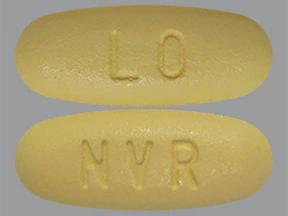Capmatinib Side Effects
Applies to capmatinib: oral tablet.
Serious side effects of Capmatinib
Along with its needed effects, capmatinib may cause some unwanted effects. Although not all of these side effects may occur, if they do occur they may need medical attention.
Check with your doctor immediately if any of the following side effects occur while taking capmatinib:
More common
- Bloating or swelling of the face, arms, hands, lower legs, or feet
- chest pain or tightness
- chills
- clay colored stools
- cough
- dark urine
- decreased or loss of appetite
- difficult or labored breathing
- fever
- general feeling of discomfort or illness
- headache
- itching
- nausea and vomiting
- rapid weight gain
- skin rash
- stomach pain or tenderness
- swelling of the feet or lower legs
- thickening of bronchial secretions
- tingling of the hands or feet
- unusual weight gain or loss
- unusual tiredness or weakness
- yellow eyes or skin
Less common
- Agitation
- coma
- confusion
- constipation
- decreased urine output
- depression
- dizziness
- fast heartbeat
- hostility
- indigestion
- irritability
- lethargy
- muscle twitching
- pain, redness, swelling, tenderness, warmth on the skin
- pains in the stomach, side, or abdomen, possibly radiating to the back
- seizures
- sore throat
- stupor
- swelling of the face, ankles, or hands
Incidence not known
- Increased sensitivity of the skin to sunlight
- redness or other discoloration of the skin
- severe sunburn
Other side effects of Capmatinib
Some side effects of capmatinib may occur that usually do not need medical attention. These side effects may go away during treatment as your body adjusts to the medicine. Also, your health care professional may be able to tell you about ways to prevent or reduce some of these side effects.
Check with your health care professional if any of the following side effects continue or are bothersome or if you have any questions about them:
More common
Less common
- Hives or welts
For Healthcare Professionals
Applies to capmatinib: oral tablet.
Hematologic
Very common (10% or more): Lymphocytes decreased (44%), hemoglobin decreased (24%), leukocytes decreased (23%)[Ref]
Musculoskeletal
Very common (10% or more): Noncardiac chest pain (e.g., chest discomfort, musculoskeletal chest pain, noncardiac chest pain, chest pain) (15%), back pain (14%)[Ref]
Metabolic
Very common (10% or more): Albumin decreased (68%), creatinine increased (62%), alanine aminotransferase increased (37%), alkaline phosphatase increased (32%), amylase increased (31%), gamma-glutamyltransferase increased (29%), lipase increased (26%), aspartate aminotransferase increased (25%), sodium decreased (23%), phosphate decreased (23%), glucose decreased (21%), weight loss (10%)[Ref]
Respiratory
Very common (10% or more): Dyspnea (24%), cough (16%)
Common (1% to 10%): ILD/pneumonitis[Ref]
Other
Very common (10% or more): Peripheral edema (e.g., peripheral swelling, peripheral edema, fluid overload) (52%), fatigue/asthenia (32%), pyrexia/increased body temperature (14%)[Ref]
Renal
Very common (10% or more):
Common (1% to 10%): Acute kidney injury (including renal failure)[Ref]
Dermatologic
Common (1% to 10%): Pruritus (allergic and generalized), cellulitis, urticaria[Ref]
Gastrointestinal
Very common (10% or more): Nausea (44%), vomiting (28%), constipation (18%), diarrhea (18%)
Common (1% to 10%): Acute pancreatitis[Ref]
Frequently asked questions
More about capmatinib
- Check interactions
- Compare alternatives
- Dosage information
- During pregnancy
- Drug class: multikinase inhibitors
- Breastfeeding
- En español
Patient resources
Other brands
Professional resources
Other brands
Related treatment guides
References
1. Product Information. Tabrecta (capmatinib). Novartis Pharmaceuticals. 2020.
Further information
Always consult your healthcare provider to ensure the information displayed on this page applies to your personal circumstances.
Some side effects may not be reported. You may report them to the FDA.

